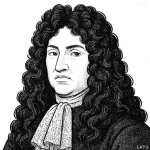“There is none made so great, but he may both need the help and service, and stand in fear of the power and unkindness, even of the meanest of mortals.”

- c. 4 BC – AD 65
- Roman
- Philosopher, Statesman, Dramatist, Stoic Thinker, Advisor to Emperor Nero
table of contents
Quote
“There is none made so great, but he may both need the help and service, and stand in fear of the power and unkindness, even of the meanest of mortals.”
Explanation
No one, however powerful, is beyond the reach or influence of those considered lowly. Seneca the Younger reminds us that human interdependence transcends social rank—even the greatest must, at times, rely on the assistance of the most humble. Furthermore, those at the top are not immune to harm or betrayal from those beneath them, making arrogance not only foolish but dangerous.
This observation reflects Stoic values of humility, mutual respect, and the recognition of our shared humanity. Seneca emphasizes that dignity and value are not confined to status or position. The “meanest of mortals” can hold influence over the mighty—whether as a servant, citizen, or even a simple voice of dissent. True wisdom, then, lies not in dominance, but in understanding the limits of one’s own power.
In modern life, this insight remains deeply relevant in leadership, governance, and daily relationships. No executive, official, or public figure is untouchable—and no individual is without worth. Seneca’s words are a call to respect, humility, and the awareness that strength is most secure when it honors those it depends on.
Would you like to share your impressions or related stories about this quote in the comments section?


